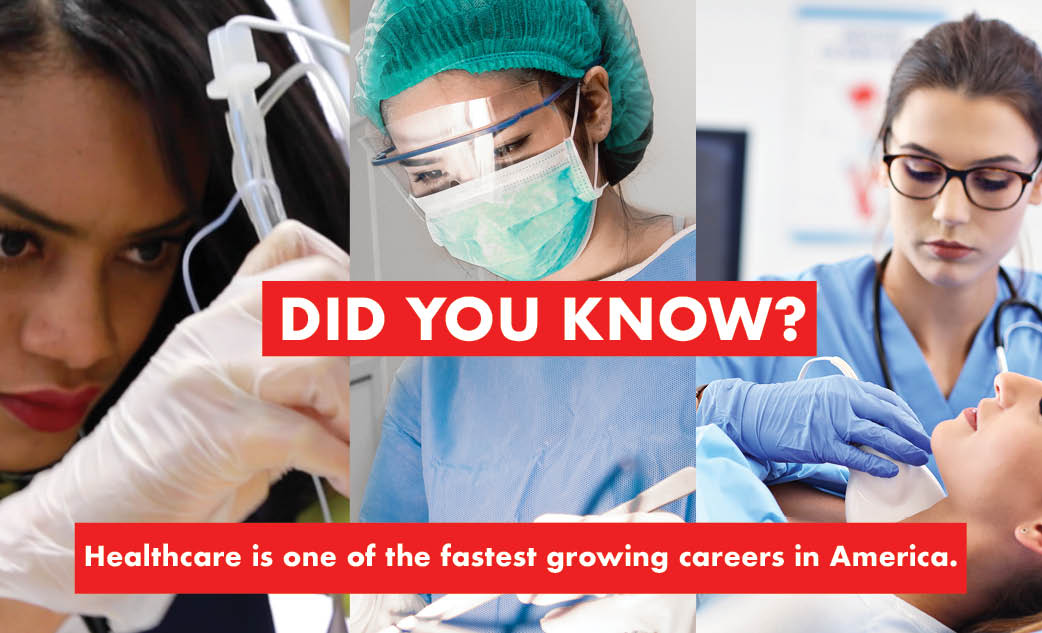Diagnostic Medical Sonography, often referred to simply as ultrasound technology, plays a crucial role in modern healthcare. Professionals in this field use specialized equipment to create images of internal organs, tissues, and blood flow to aid physicians in diagnosing and treating medical conditions. Pursuing a degree in diagnostic medical sonography opens doors to a rewarding career with numerous advantages and opportunities. Mandl School, the College of Allied Health offers this incredible degree program, one of the only programs of its kind in New York City.
1. High Demand and Job Stability
In the healthcare industry, diagnostic medical sonographers are in high demand. As technology advances and ultrasound becomes increasingly vital in medical diagnostics, the need for skilled professionals continues to grow. This high demand translates into excellent job stability and career prospects for individuals with the right qualifications.
2. Diverse Career Options
A degree in diagnostic medical sonography opens doors to a variety of career paths. Sonographers can specialize in areas such as obstetrics and gynecology, abdominal sonography, vascular sonography, and echocardiography. Each specialty offers unique challenges and opportunities to work with different patient populations and medical conditions.
3. Hands-On Patient Interaction
One of the most rewarding aspects of a career in sonography is the opportunity to work closely with patients. Sonographers play a crucial role in patient care, ensuring their comfort and safety during procedures while obtaining high-quality diagnostic images. This direct interaction allows professionals to make a positive impact on patients’ lives daily.
4. Technological Advancements
The field of diagnostic medical sonography is dynamic and constantly evolving with technological advancements. Professionals have access to state-of-the-art equipment and innovative imaging techniques that improve diagnostic accuracy and patient outcomes. Keeping up-to-date with these advancements ensures that sonographers remain at the forefront of medical imaging technology.
5. Competitive Salary and Benefits
Due to the specialized nature of their work and the high demand for skilled professionals, diagnostic medical sonographers enjoy competitive salaries and comprehensive benefits packages. Additionally, many employers offer opportunities for career advancement and professional development, allowing sonographers to expand their skills and knowledge throughout their careers.
6. Job Flexibility and Work-Life Balance
Sonographers often have the flexibility to choose from various work settings, including hospitals, clinics, imaging centers, and private practices. This flexibility extends to work hours, with many positions offering options for part-time or evening shifts. Such flexibility can contribute to a better work-life balance, allowing professionals to pursue personal interests and commitments outside of work.
7. Continual Learning and Growth
Continual learning is integral to the field of diagnostic medical sonography. Professionals have opportunities to attend conferences, workshops, and continuing education courses to stay current with industry trends and advancements. This commitment to lifelong learning not only enhances job performance but also opens doors to new career opportunities and specializations.
Conclusion
A degree in diagnostic medical sonography offers a pathway to a fulfilling and financially rewarding career in healthcare. From high demand and job stability to technological advancements and diverse career options, the benefits of pursuing this degree are numerous. If you are passionate about helping others, enjoy working with advanced technology, and seek a career with opportunities for growth and development, diagnostic medical sonography could be the perfect fit for you.
Apply to Mandl School
Ready to embark on this exciting journey? Contact Mandl School today to learn more. Speak to our Admissions Department and learn about career opportunities, financial aid, internships, and much more. Take the first step toward a successful career in diagnostic medical sonography today!

 Mandl School
Mandl School


